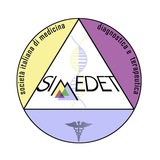#Estradiol Therapy After Menopause Mitigates Effects of #Stress on Cortisol and Working #Memory
https://academic.oup.com/jcem/article-abstract/doi/10.1210/jc.2017-00825/4587523?redirectedFrom=fulltext
Postmenopausal estradiol therapy (ET) can reduce the stress response. However, it remains unclear whether such reductions can mitigate effects of stress on cognition
Participants had received a median of randomized 4.7 years of estradiol (n = 21) or placebo (n = 21) treatment at time of participation in this study
Women assigned to estradiol exhibited blunted cortisol responses to CPT compared to placebo (p = .017), and lesser negative effects of stress on working memory (p = .048).
Conclusions
We present novel evidence suggesting ET may protect certain types of cognition in the presence of stress. Such estrogenic protection against stress hormone exposure may prove beneficial to both cognition and the neural circuitry that maintains and propagates cognitive faculties
https://academic.oup.com/jcem/article-abstract/doi/10.1210/jc.2017-00825/4587523?redirectedFrom=fulltext
Postmenopausal estradiol therapy (ET) can reduce the stress response. However, it remains unclear whether such reductions can mitigate effects of stress on cognition
Participants had received a median of randomized 4.7 years of estradiol (n = 21) or placebo (n = 21) treatment at time of participation in this study
Women assigned to estradiol exhibited blunted cortisol responses to CPT compared to placebo (p = .017), and lesser negative effects of stress on working memory (p = .048).
Conclusions
We present novel evidence suggesting ET may protect certain types of cognition in the presence of stress. Such estrogenic protection against stress hormone exposure may prove beneficial to both cognition and the neural circuitry that maintains and propagates cognitive faculties
OUP Academic
Estradiol Therapy After Menopause Mitigates Effects of Stress on Cortisol and Working Memory | The Journal of Clinical Endocrinology…
ContextPostmenopausal estradiol therapy (ET) can reduce the stress response. However, it remains unclear whether such reductions can mitigate effects of stress on cognition.ObjectiveInvestigate effects of ET on cortisol response to a physical stressor, cold…
Efficacy of Transdermal #Estradiol and Micronized Progesterone in the Prevention of #Depressive Symptoms in the Menopause Transition
https://jamanetwork.com/journals/jamapsychiatry/fullarticle/2668205
Women assigned to placebo were more likely than those assigned to TE+IMP to score at least 16 on the CES-D at least once during the intervention phase (32.3% vs 17.3%; odds ratio OR, 2.5; 95% CI, 1.1-5.7; P = .03) and had a higher mean CES-D score across the intervention period (P = .03). Baseline reproductive stage moderated the effect of treatment (β, −1.97; SEM, 0.80; P for the interaction = .03) such that mood benefits of TE+IMP vs placebo were evident among women in the early menopause transition (β, −4.2; SEM, 1.2; P < .001) but not the late menopause transition (β, −0.9; SEM, 0.3; P = .23) or among postmenopausal women (β, −0.3; SEM, 1.1; P = .92). Stressful life events in the 6 months preceding enrollment also moderated the effect of treatment on mean CES-D score such that the mood benefits of TE+IMP increased with a greater number of events (β, 1.22; SEM, 0.40; P = .003). Baseline estradiol levels, baseline vasomotor symptoms, history of depression, and history of abuse did not moderate treatment effects.
Conclusions Twelve months of TE+IMP were more effective than placebo in preventing the development of clinically significant depressive symptoms among initially euthymic perimenopausal and early postmenopausal women.
https://jamanetwork.com/journals/jamapsychiatry/fullarticle/2668205
Women assigned to placebo were more likely than those assigned to TE+IMP to score at least 16 on the CES-D at least once during the intervention phase (32.3% vs 17.3%; odds ratio OR, 2.5; 95% CI, 1.1-5.7; P = .03) and had a higher mean CES-D score across the intervention period (P = .03). Baseline reproductive stage moderated the effect of treatment (β, −1.97; SEM, 0.80; P for the interaction = .03) such that mood benefits of TE+IMP vs placebo were evident among women in the early menopause transition (β, −4.2; SEM, 1.2; P < .001) but not the late menopause transition (β, −0.9; SEM, 0.3; P = .23) or among postmenopausal women (β, −0.3; SEM, 1.1; P = .92). Stressful life events in the 6 months preceding enrollment also moderated the effect of treatment on mean CES-D score such that the mood benefits of TE+IMP increased with a greater number of events (β, 1.22; SEM, 0.40; P = .003). Baseline estradiol levels, baseline vasomotor symptoms, history of depression, and history of abuse did not moderate treatment effects.
Conclusions Twelve months of TE+IMP were more effective than placebo in preventing the development of clinically significant depressive symptoms among initially euthymic perimenopausal and early postmenopausal women.
Association of #PET-based #estradiol-challenge test for #breast cancer progesterone receptors with response to endocrine therapy
https://2medical.news/2021/02/23/association-of-pet-based-estradiol-challenge-test-for-breast-cancer-progesterone-receptors-with-response-to-endocrine-therapy/
Estrogen receptor (ER) testing of breast cancer imperfectly predicts response to endocrine therapy (ET). We hypothesize that a brief estradiol challenge will increase tumor progesterone receptor (PgR) levels only in tumors with functional ER. In this prospective, phase 2, single-center, single-arm trial (NCT02455453), we report the association of response to ET with change in tumor uptake of the progestin analog, 21-[18F]fluorofuranylnorprogesterone (FFNP), before and after …
https://2medical.news/2021/02/23/association-of-pet-based-estradiol-challenge-test-for-breast-cancer-progesterone-receptors-with-response-to-endocrine-therapy/
Estrogen receptor (ER) testing of breast cancer imperfectly predicts response to endocrine therapy (ET). We hypothesize that a brief estradiol challenge will increase tumor progesterone receptor (PgR) levels only in tumors with functional ER. In this prospective, phase 2, single-center, single-arm trial (NCT02455453), we report the association of response to ET with change in tumor uptake of the progestin analog, 21-[18F]fluorofuranylnorprogesterone (FFNP), before and after …
